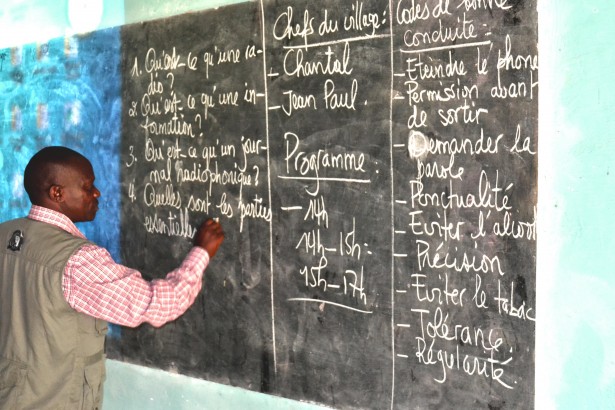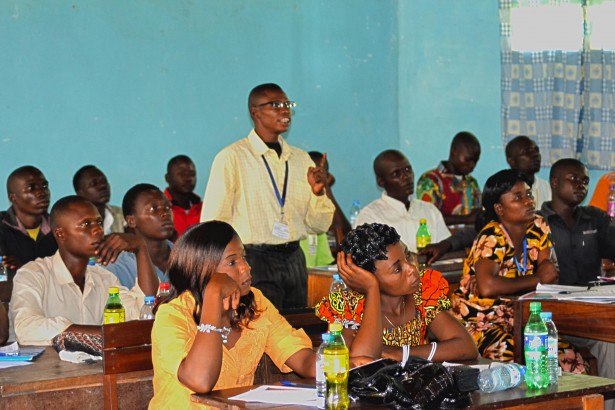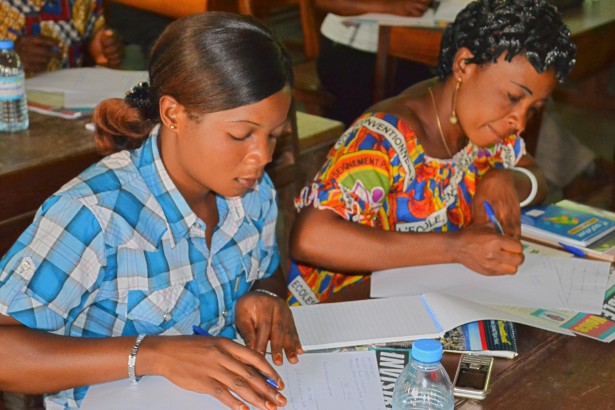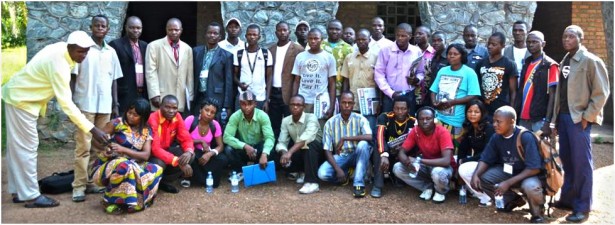
While global dialogue surrounding human rights abuses and humanitarian disasters is critical, local reporting from areas affected by these atrocities is equally important. It not only allows for the voices and perspectives of those most affected by conflict to be heard, but it increases regional awareness of – and participation in – conflict resolution and reconciliation.
“This is important because this is the time that people are insecure and need information.” – Willy Charles Okello, IC Regional Media Officer
For this reason, Invisible Children facilitated a four-day workshop on August 26-29 that brought together 33 journalists from LRA-affected regions in northeast DR Congo. The purpose of the workshop was to:
1.) Strengthen the journalistic capacity of local radio reporters
2.) Train these local journalists in defection messaging tactics, including the dissemination of “come home” messaging
“Yes, we have put radios up in DRC and are still building more, but radios without journalism skills doesn’t make much sense,” said Invisible Children’s Regional Media Officer, Willy Charles Okello, who led the training in Dungu. “These journalists are doing sensitive work. They are dealing with community security and the LRA, and so it is important they have the skills to gather the information, bring it to the community, and get the message correct.”

Radio production is relatively new to northeast DRC, meaning that up until recently communities weren’t able to participate in their local media, including reporting on regional issues such as the LRA. Radio programming came from outlets hundreds of miles away in Goma, or neighboring countries. Now, communities are able to use locally produced radio to talk about what is going on in their region.
Willy offered the example, “For instance, it is important for a community that has experienced LRA violence to have a debate and ask the question: can you forgive [if LRA defectors want to come home]?”
Invisible Children’s intensive four-day training stressed the importance of involving local audiences in radio programming. Journalists were trained on how to encourage community members to offer feedback, fostering a participatory media culture where dialogue about reconciliation can take place in a public forum.

The come home messaging component of the training was equally productive. Willy, who had witnessed the effectiveness of come home radio programming firsthand in northern Uganda, offered insight on how to effectively target the LRA, and encourage their surrender. The idea was to translate the defection messaging model used when the LRA was in northern Uganda, to the now affected regions of northeastern DRC.
In areas where communication is difficult, it is imperative that local communities be equipped with the knowledge and resources to tell their stories and report life-saving information. Programs that effectively did this in northern Uganda were instrumental in Kony and his rebel army leaving Uganda nearly a decade ago. Taking those lessons learned, and applying them to the affect regions in DRC, is an important step on the way to zeroLRA.
Join us by fundraising this fall as we commit to zeroLRA and work to bring every abducted child soldier, women, and fighter home.

View the full schedule and training guide from the four-day workshop [HERE].
Think people should hear about this?